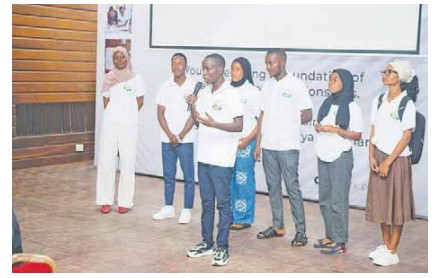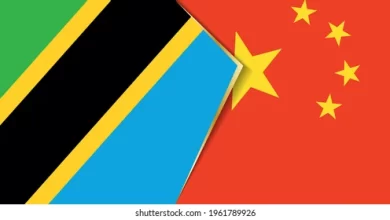How UVITA empowers Tanzanian youths to fight GBV smartly

BEHOLD, in the bustling heart of Dar es Salaam, a quiet revolution is brewing and no, it is not another noisy campaign rally.
This one is youth-led, insight driven and aimed squarely at two of Tanzania’s thorniest challenges: Gender-based violence (GBV) and youth mental health.
At the center of this movement is Ustawi wa Vijana Tanzania (UVITA) a game-changing initiative co-led by the University of Dar es Salaam (UDSM) and the University of Sussex in the UK.
But don’t let the academic names fool you, because this is not a typical dusty research project gathering cobwebs on a shelf.
Here, UVITA is putting Tanzanian youth (aged 18–25) front and centre as researchers, change-makers and artists of transformation. With a 380,000 British Pound boost from the UK’s Arts and Humanities Research Council (AHRC), UVITA is not here to fix problems for young people, it empowers them to fix problems with their own hands, voices and creative tools.
Implemented across three urban communities namely Wazo Hill (Kinondoni), Mbagala (Temeke) and UDSM campus (Ubungo), UVITA is all about grassroots, participatory research and powerful conversations that don’t just collect data but spark real dialogue and emotional healing.
“This is not about speaking for young people,” says Dr Lyndsay McLean, Principal Investigator from the University of Sussex.
ALSO READ: Tanzania’s bold climate justice stand tall
“It is about equipping them to speak for themselves and doing so in ways that reflect their real, everyday experiences.” McLean, who has led similar projects in the Democratic Republic of Congo, recalls how even young women with no formal education became brilliant peer researchers.
“One of the most impactful contributors couldn’t read or write, but she could read her community better than any textbook ever could.” Co-investigator Dr Richard Sambaiga from UDSM highlights that UVITA is built around peer-topeer research, creative arts, therapy sessions and youthled solutions.
The goal? Not to rescue young people but to let them lead their own rescue mission.
“These youth are not just participants,” he says, “they are leaders, researchers and agents of real change.” From TikTok to Trauma: Real tools for real problems UVITA trains youth in everything from digital storytelling and expressive arts to research methods and community facilitation. Forget imported mental health jargon and resort to UVITA which is rooted in Tanzanian culture and community wisdom.
“This is not therapy imported from abroad,” says Prof Neema Mori of UDSM. “It is co-created with youth, built on Tanzanian traditions, values and the realities they live every day.” Of the total funding, 260,000 British Pound is dedicated directly to work on the ground in Dar es Salaam.
The rest supports academic engagement, policy conversations and knowledge-sharing globally. UVITA partners with a wide network including Kijana Jasiri Resilience Organisation (KJRO), Young and Alive Initiative (YAI), Tanzania Psychological Association (TAPA) and TAMWA and it has the strategic support of government ministries, ensuring this is not a flash in the pan but a model for national transformation.
Youth testimonials: Changing lives, one story at a time Immaculata Mkuba, a youth co-researcher from UDSM, says the training has changed her completely.
“I used to think research was for professors with clipboards,” she laughs. “Now I know how to ask meaningful questions and turn conversations into powerful insights.” She has also learned that GBV isn’t always physical — it is layered and often hidden.
“I didn’t even realise some behaviours I saw growing up were forms of violence,” she admits. Shadya Mohamed from Mbagala found emotional healing through UVITA’s safe spaces.
“We’re not just telling our stories,” she says. “We’re shaping solutions. Art, music and conversation are our weapons.” She co-created UVITA’s theme song, which has become a rallying cry for awareness. “People listen when music speaks,” she smiles.
From Wazo Hill, Godfrey Rutajayana credits UVITA with helping him understand emotional abuse and mental health.
“We’re not the leaders of tomorrow, we are leaders today,” he insists.
Whether through short films, mobile apps or digital campaigns, UVITA youth are turning creativity into a call to action. They are not waiting for permission to change their communities, they are doing it now. As Godfrey puts it: “It is our time. We are not just voices of the future; we are the megaphones of now.”





